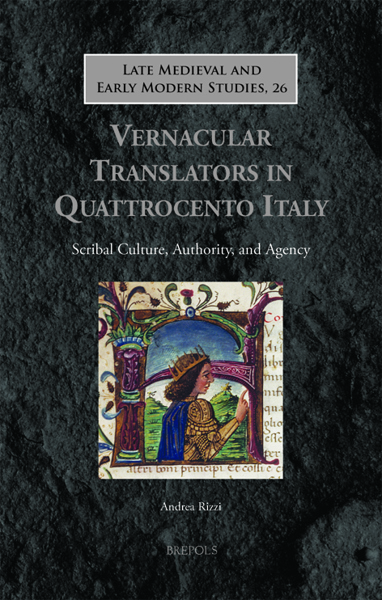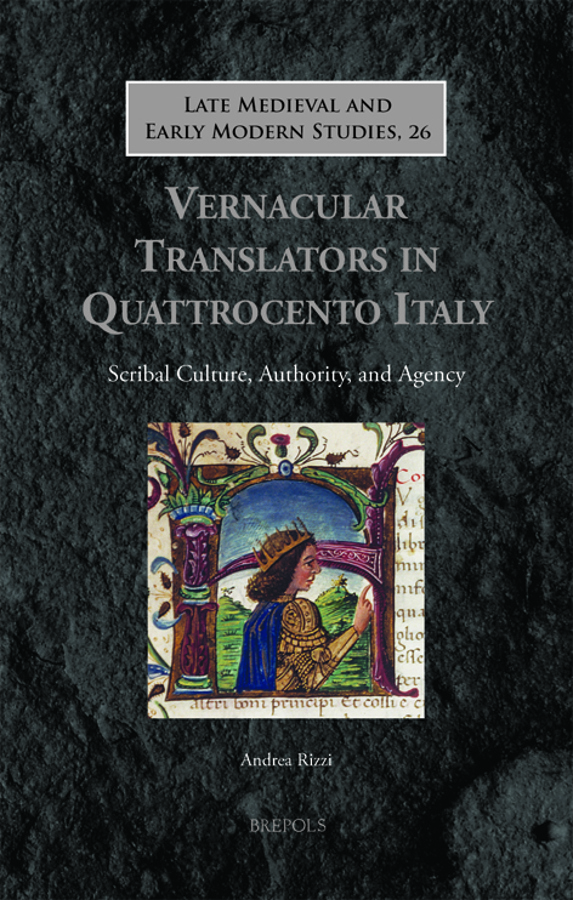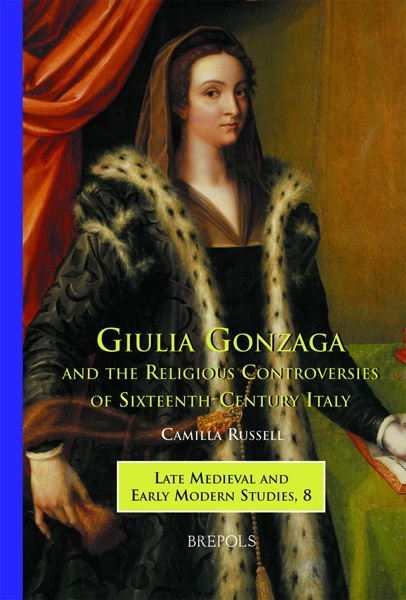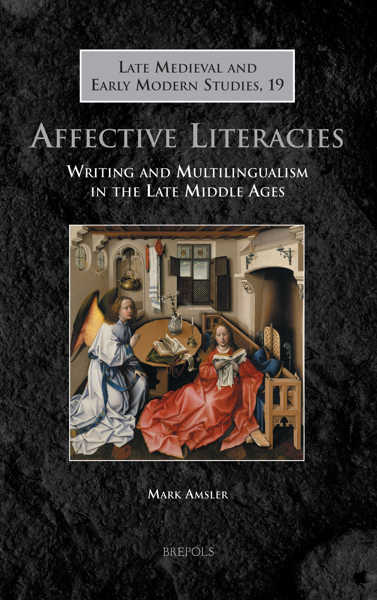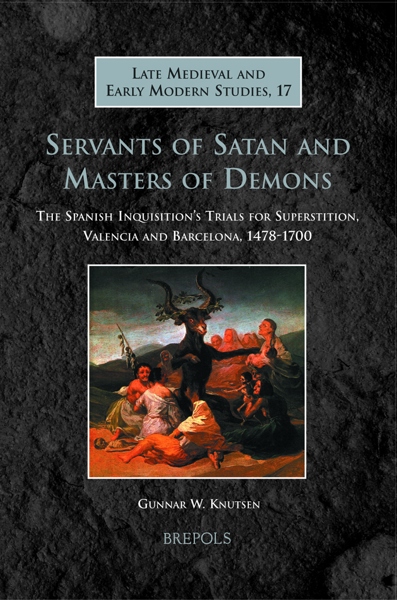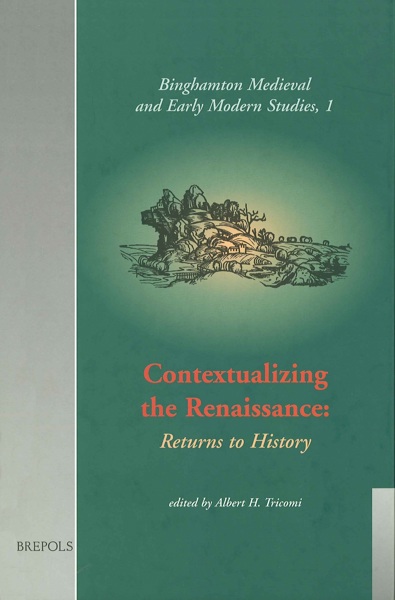
- Pages: 236 p.
- Size:156 x 234 mm
- Illustrations:5 b/w
- Language(s):English, Latin
- Publication Year:2017
- € 85,00 EXCL. VAT RETAIL PRICE
- ISBN: 978-2-503-56785-3
- Hardback
- Available
- € 85,00 EXCL. VAT RETAIL PRICE
- ISBN: 978-2-503-56786-0
- E-book
- Available
This study collapses the perceived divide between Latin and vernacular humanisms, and offers a fresh understanding of Quattrocento Italy as a period of immense dynamism and creativity in the history of translation.
“Any time a book softens binaries and complicates the received opinion, we must welcome it, and that is certainly the case here.” (Craig Kallendorf, in Seventeenth Century News, 75/3-4, 2017, p. 129-130)
“(...) by looking at the ways in which vernacular translators conceived their function and fashioned their identity, the book provides novel insights into the productive role of translation practices in fostering forms of cultural, social, and political negotiation that have shaped a substantial part of what is traditionally labeled "Italian Renaissance." (Eugenio Refini, in The Medieval Review, 18.09.31)
“This is a well written and entirely persuasive monograph that has much to offer the specialist while retaining a broad appeal to students of early modern Italy.” (Carolyn James, in Spunti e Ricerche, 33, 2018, p. 177)
“Rizzi wrote a rich and challenging study about vernacular translators in fifteenth-century Italy (…) An appendix (…), a comprehensive bibliography, and a useful index conclude this excellent book, which shows the intricate dynamic between source texts, translators, translations, patrons, humanists, and readers in the practices of translation, particularly in fifteenth-century Italy.” (Jan Bloemendal, in The American Historical Review, 124/3, 2019, p. 1158-1159)
“Vernacular Translators in Quattrocento Italy is well worth reading. It provides discussion and analysis on a subject that is not often discussed at length among scholars of fifteenth-century Italy. Not least, Andrea Rizzi’s work saves Quattrocento translators from the “mud of oblivion” (33).” (Mohammad Jamali, in Renaissance and Reformation, 43/2, 2020, p. 411)
This book provides a richly documented study of vernacular translators as agents within the literary culture of Italy during the fifteenth century. Through a fresh and careful examination of these early modern translators, Rizzi shows how humanist translators went about convincing readers of the value of their work in disseminating knowledge that would otherwise be inaccessible to many. The translators studied in this book include not only the well-known ‘superstars’ such as Leonardo Bruni, but also little-known and indeed obscure writers from throughout the Italian peninsula.
Rizzi demonstrates that vernacular translation did not cease with the rise of ‘humanism’. Translations from Greek into Latin spurred the concurrent production of ‘new’ vernacular versions. Humanists challenged themselves to produce creative and authoritative translations both from Greek and occasionally from the vernacular into Latin, and from Latin into the vernacular. Translators grew increasingly self-assertive when taking on these tasks.
The findings of this study have wide implications: they trace a novel history of the use of the Italian language alongside Latin in a period when high culture was bilingual. They also shed further light on the topic of Renaissance self-fashioning, and on the workings of the patronage system, which has been studied far less in literary history than in art history. Finally, the book gives welcome emphasis to the concept that the creation and the circulation of translations (along with other literary activities) were collaborative activities, involving dedicatees, friends, and scribes, among others.
List of Illustrations
Acknowledgements
Introduction: A New Era for Translators
- Authority
- Eloquence
- Collaboration
- Friendship
- ‘Libri utilissimi’
- The Translator and the Paratext
- Translations as Objects
- How Many Vernacular Translators? What Texts Did They Translate?
- Beyond ‘Humanism’ and its Dichotomies
- Agents of Praise and Blame
- Diligent and Industrious
- ‘I had worked hard’: Self-translators and Self-promoters
- Vernacular Writing in the Early Quattrocento
- Vernacular Translation and ‘Following the Times’
- ‘Each thing is most completely perfect’
- Communication and Persuasion through Vernacular Translation
- The Traductor as a Model for Vernacular Translators
- Bruni Defending his Translative Practice
- The Quest for Elegance
- The Vernacular Traductor
- ‘We have improved the text’
- Transforming the Ruler
- Mirroring the Ruler
- ‘Your lordship, make up my inaccuracies’
- Open Expressions of Friendship
- Seeking and Giving Political Support
- Gifts of Collaboration
Appendix: List of Quattrocento Vernacular Translators for the Years 1392–1480
Bibliography
Index of Names
